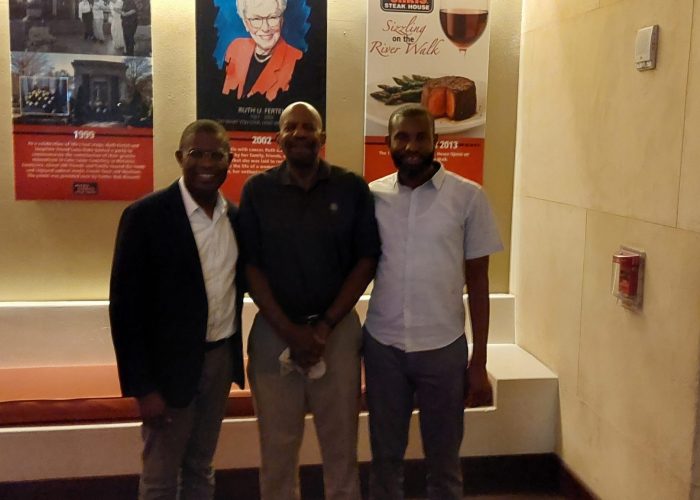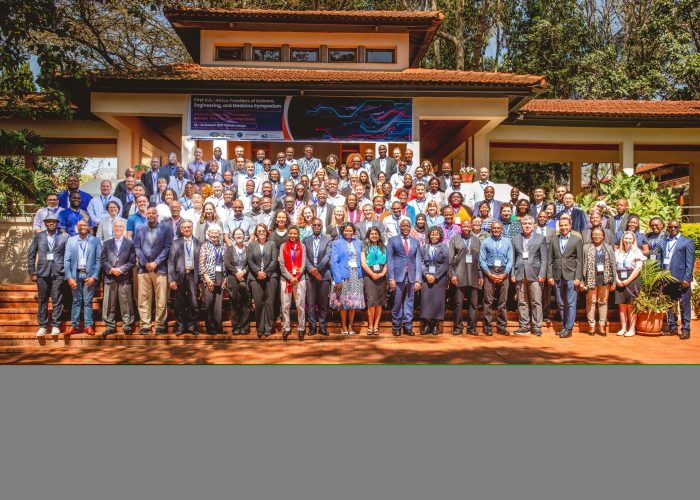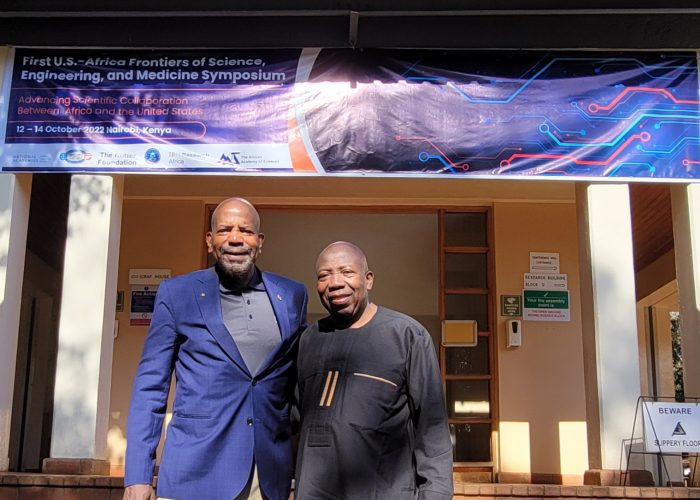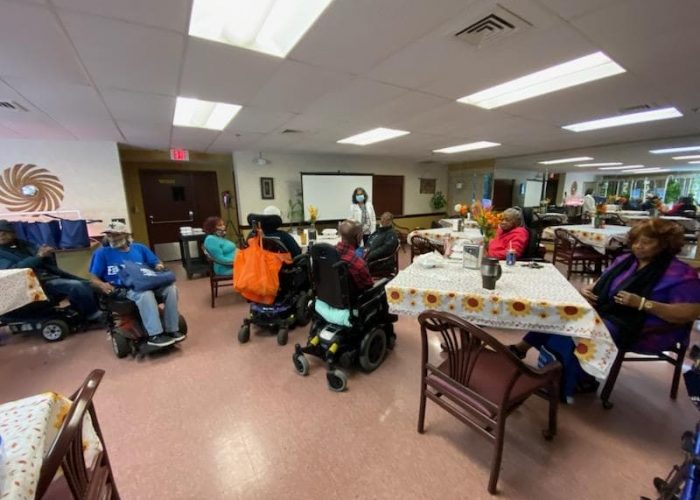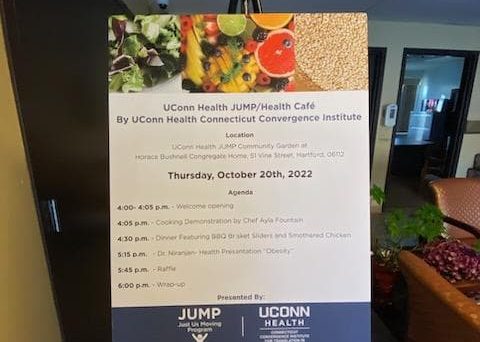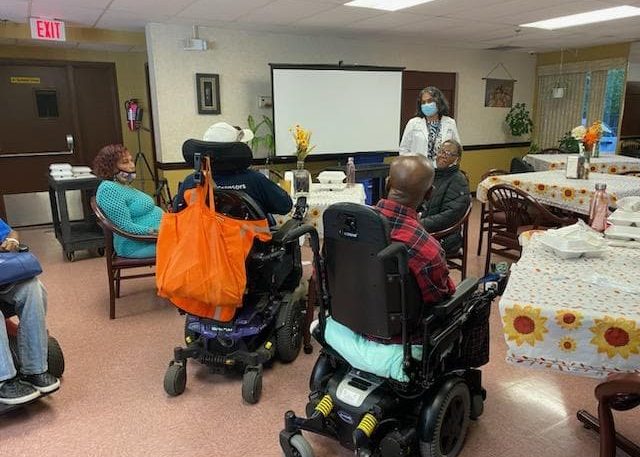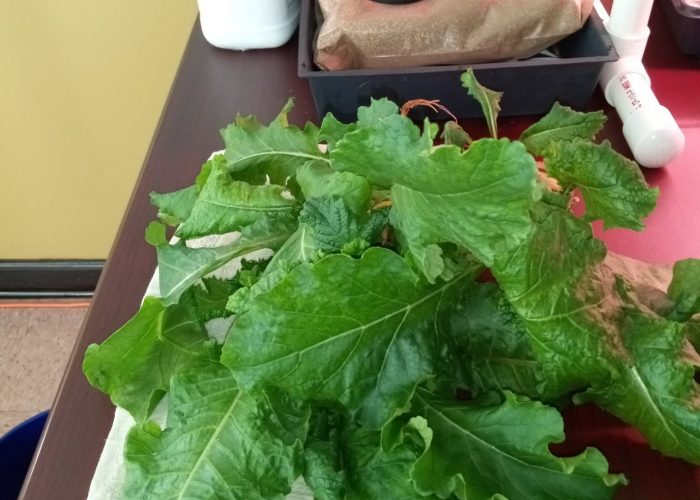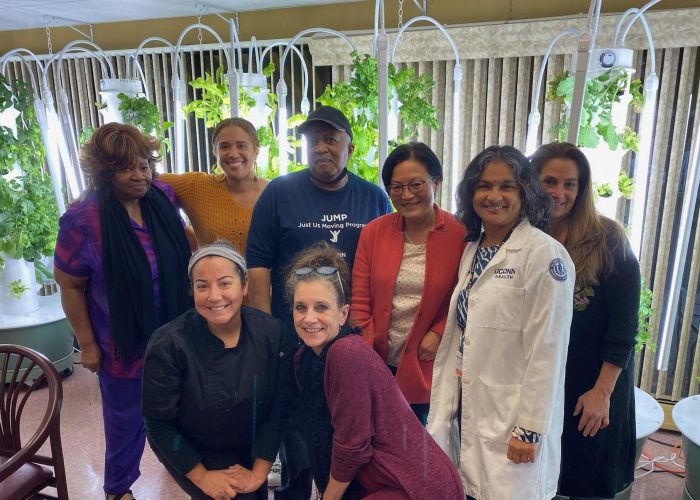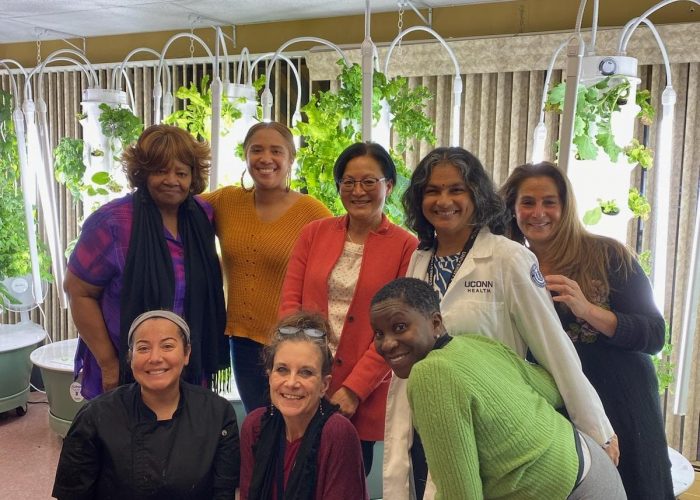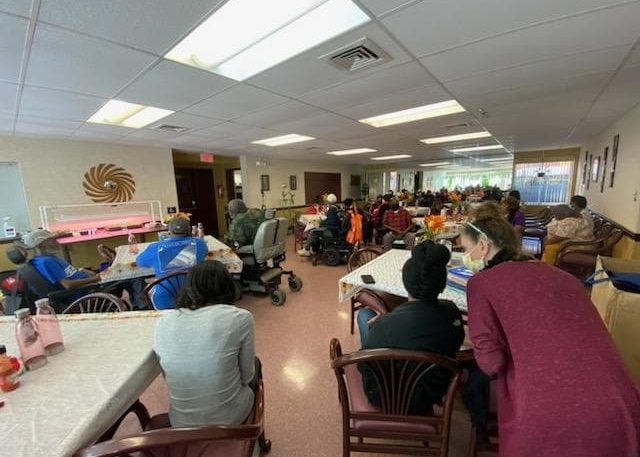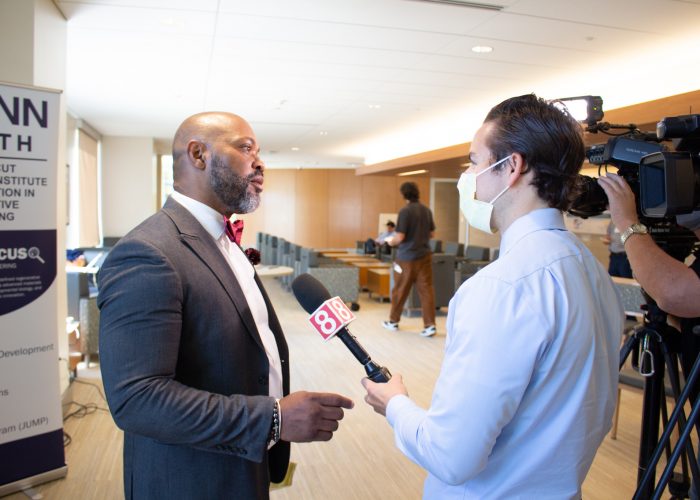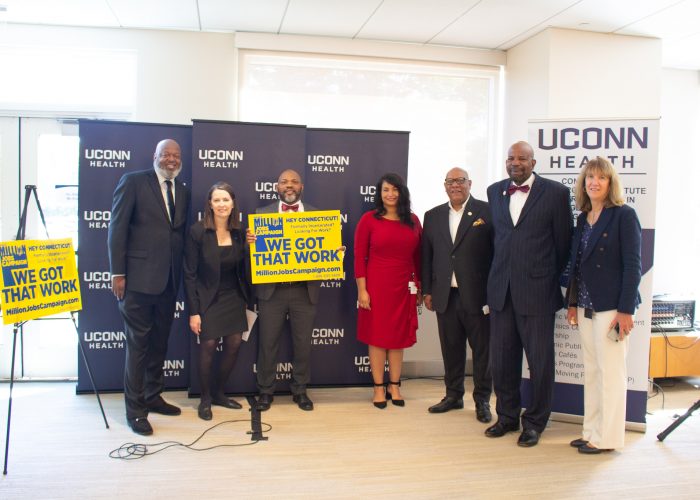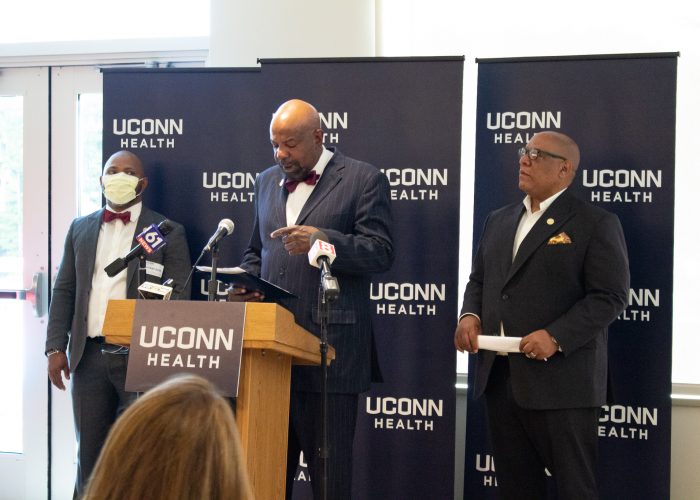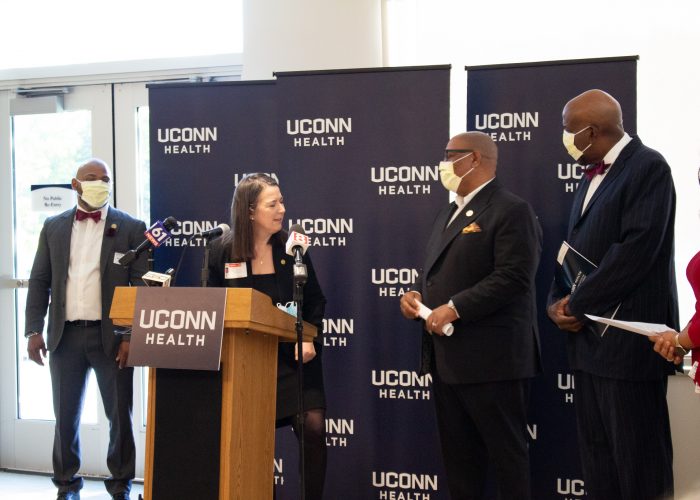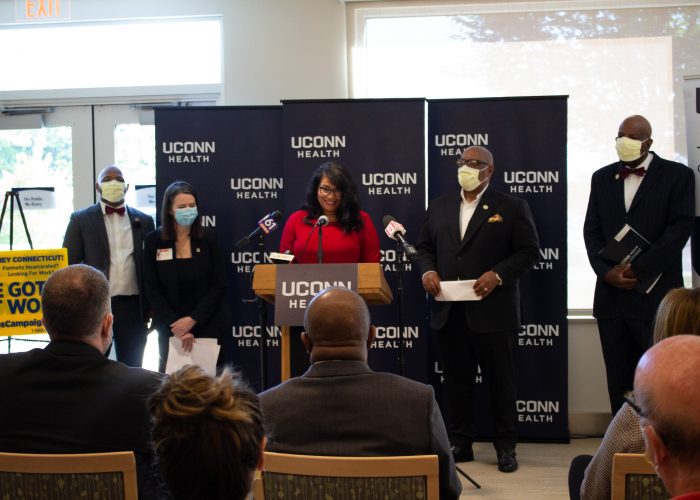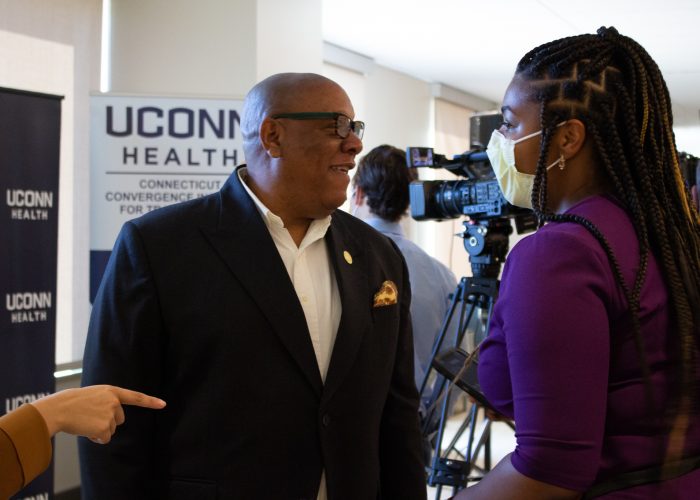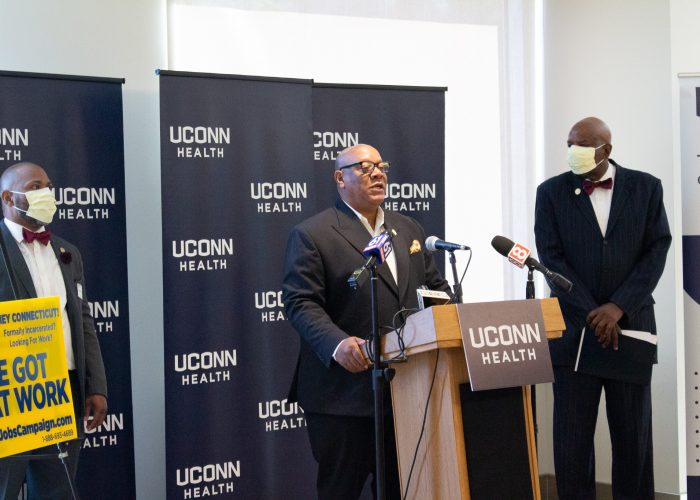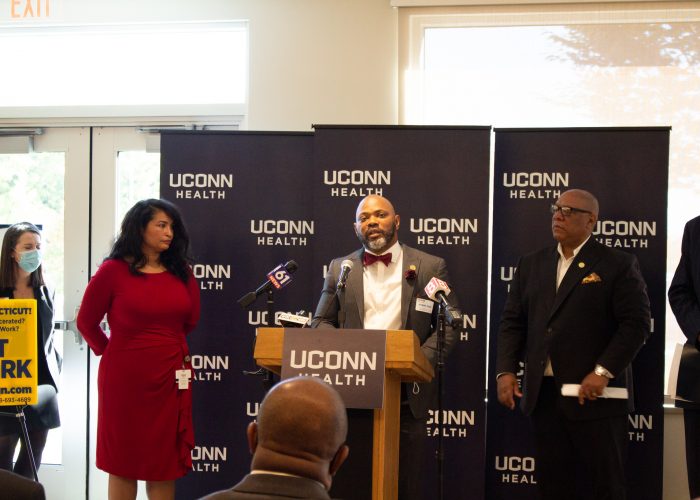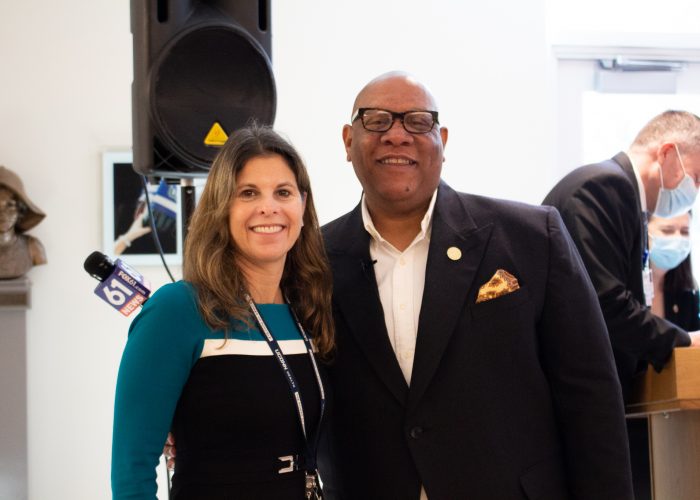The Orthopaedic Research Society will present Dr. Cato Laurencin, CEO of the Connecticut Convergence Institute for Translation in Regenerative Engineering, with the Marshall R. Urist Award for Excellence in Tissue Regeneration Research. Dr. Laurencin is the University Professor and Albert and Wilda Van Dusen Distinguished Endowed Professor of Orthopaedic Surgery. He will accept the award on February 7, 2022 at the society’s annual meeting.
Established in 1996, the Marshall Urist Award recognizes researchers who have demonstrated major achievements in the area of tissue regeneration and have established themselves as cutting edge scientists.
Dr. Laurencin has achieved breakthrough achievements in tissue regeneration, biomaterials science, nanotechnology, and regenerative engineering, a field he founded. He previously received the highest scientific honor of the Association of Bone and Joint Surgeon, the Nicolas Andry Award, and the Kappa Delta Award which is the highest scientific honor of the American Academy of Orthopaedic Surgeons.
He received his B.S.E. in Chemical Engineering from Princeton, his M.D., Magna Cum Laude from the Harvard Medical School. He received his Ph.D. in Biochemical Engineering/Biotechnology from M.I.T.
Dr. Laurencin is the first surgeon elected to all four of the U.S. National Academies: the National Academy of Sciences, the National Academy of Engineering, the National Academy of Medicine and the National Academy of Inventors. He is also the recipient of the National Medal of Technology and Innovation, America’s highest honor for technological achievement. Most recently the American Institute of Chemical Engineer’s Foundation established the Cato T. Laurencin Regenerative Engineering Founder’s Award, recognizing his pioneering work in the field.
On February 7, 2022, Dr. Laurencin will be honored the Marshall R. Urist MD Award and will deliver a presentation during the ORS Annual Meeting of 2022.

